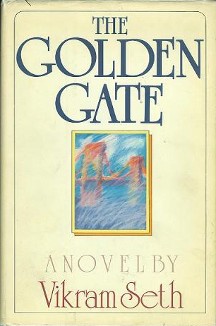 Always Crashing in the Same Car
by
Matthew Specktor, Portland, Ore.: Tin House Books, 2021 discussed on Wednesday, January 25, 2023, 7:00 p.m.
Always Crashing in the Same Car
by
Matthew Specktor, Portland, Ore.: Tin House Books, 2021 discussed on Wednesday, January 25, 2023, 7:00 p.m.
ISBN: 9781951142629
“…[T]he book is both a personal memoir and a cultural study, written with poetic charm. ...Specktor reflects on the mythos of Hollywood and the storied elements and landmarks of its built environment. …[He] is particularly dedicated to failure here, as he traces stories of writers, actors, musicians, and directors whose careers were sidelined for a variety of reasons...As each chapter is a slice of biography from a particular perspective...the stories feel somewhat incomplete. Specktor would not be wrong in hoping that those narrative gaps create curiosity. To draw the reader in, then inspire the reader to search online, to watch the films, to listen to the albums, indicates a quality book.” — Linda Levitt, PopMatters.com
In 2006, Matthew Specktor moved into a crumbling Los Angeles apartment opposite the one in which F. Scott Fitzgerald spent the last moments of his life. Fitz had been Specktor's first literary idol, someone whose own passage through Hollywood had, allegedly, broken him. Freshly divorced, professionally flailing, and reeling from his mother's cancer diagnosis, Specktor was feeling unmoored. But rather than giving in or "cracking up," he embarked on an obsessive journey to make sense of the mythologies of "success" and "failure" that haunt the artist's life and the American imagination.Part memoir, part cultural history, part portrait of place, Always Crashing in the Same Car explores Hollywood through a certain kind of collapse. It's a vibrant and intimate inspection of failure told through the lives of iconic, if under-sung, artists--Carole Eastman, Eleanor Perry, Warren Zevon, Tuesday Weld, and Hal Ashby, among others--and the author's own family history. Through this constellation of Hollywood figures, he unearths a fascinating alternate history of the city that raised him and explores the ways in which curtailed ambition, insufficiency, and loss shape all our lives. At once deeply personal and broadly erudite, it is a story of an art form (the movies), a city (Los Angeles), and one person's attempt to create meaning out of both. Above all, Specktor creates a moving search for optimism alongside the inevitability of failure and reveals the still-resonant power of art to help us navigate the beautiful ruins that await us all.
Here is the passel of questions I wrote while I was reading the book.
What is the author generally trying to grasp at?
What is the best thing about this book?
Do you find his nods to more modern thinking such as on p. 241 genuine, pandering, or something else? Why?
Is it useful to use artists', authors', or actors' lives to compare with our own? Why? Why not?
What did you think about the line at the bottom of page 258?
Does the book deal with toxic masculinity? How/How not?
Why do you think the author chose success/failure as a topic and what does that mean to the author?
What do you think of how he portrayed Los Angeles?
Do you think the author pulled off the combination of memoir and his explorations of authors, LA, movies, etc. Did the book have to be framed this way? Why/Why not?
Do you think he read his mother's challenges correctly? Why/Why not?
Did the book make you want to see any movies or read any books he wrote about? Why?/Why not? Which ones?
What's the difference between luck and fate on p. 138?
What do you think of his writing style?
What do you make of his assertions about courting disaster on p. 154
Why does he veil his references to people as he does on p. 198?
Any ambiguities we need to clear up?
Favorite line, image, or passage?


 The Golden Gate
by
The Golden Gate
by